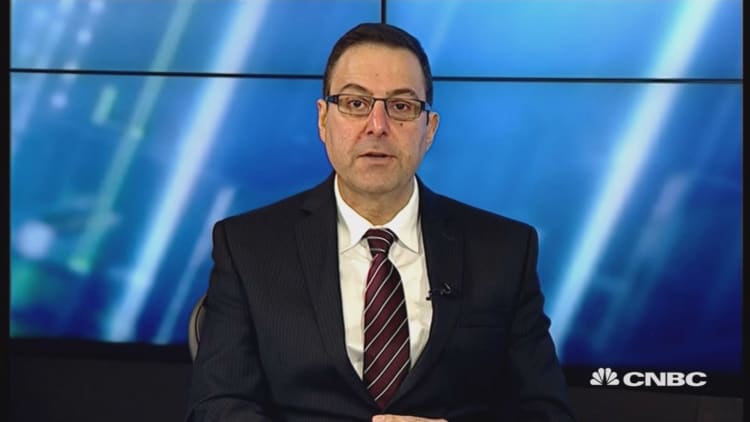The euro spiked higher in the wake of the French election results, but the surge didn't last long.
The euro climbed to $1.1022, its highest level in six months and its first break above $1.10 since the U.S. presidential election.
But the single currency quickly retraced gains, trading at around $1.0961 at 8:21 a.m. HK/SIN, not far from levels on Friday, although it was still stronger than the under $1.09 where it traded on Thursday.
The initial spike may have faded as the result didn't surprise markets much.
The French presidential election concluded on Sunday with centrist Emmanuel Macron defeating far-right candidate Marine Le Pen, as was widely expected, although his margin of victory at around 65 percent of the vote to Le Pen's around 35 percent was slightly higher than expected.
However, the publication of documents apparently hacked from Macron's campaign, released at the eleventh-hour before the French "quiet period," or day of media silence ahead of an election, preventing the candidate from responding, may have spurred market uncertainty over whether his poll lead was secure.
Matt Simpson, senior market analyst at ThinkMarkets, said in a note on Monday that Macron's victory was largely already priced in by markets.
"Whilst the initial response was clearly in favor of Macron's victory with the euro gapping higher, the outcome appears mostly priced in after traders bid the euro for much of last week as opinion polls correctly predicted his victory," Simpson said.
He noted that the euro's jump was not as pronounced as it was after the French presidential election's first round, held on April 23, when the single currency jumped from around $1.07 to over $1.09.
Simpson expected it would take better economic data or signs the European Central Bank was turning less dovish to boost the euro further.

Other analysts pointed to the job ahead of Macron for the euro's rally petering out.
"Macron has no traditional party behind him, so the political analysts will be keen to understand the make-up of his government (when it is formed) and one suspects that the view that this potentially fragmented structure is keeping a lid on euro buying in too great degree," Chris Weston, chief market analyst at spreadbettor IG, said in a note on Monday. "I would expect some buying in our European equity markets, but given what we are seeing in euro/dollar and the euro crosses, one suspects it won't be any great conviction to push up prices."
Some pointed to reasons the euro could rise ahead.
Tony Boyadjian, senior vice president for foreign exchange at Compass Global Markets, told CNBC's "Squawk Box" on Monday that the euro's spike higher was just a knee-jerk reaction.
But he also pointed to reasons to be bullish on the single currency, noting that the ECB's chief economist Peter Praet last week indicated the central bank's currently ultra-easy policy guidance could change.
Boyadjian said that could mean the ECB started considering raising interest rates as early as June.


